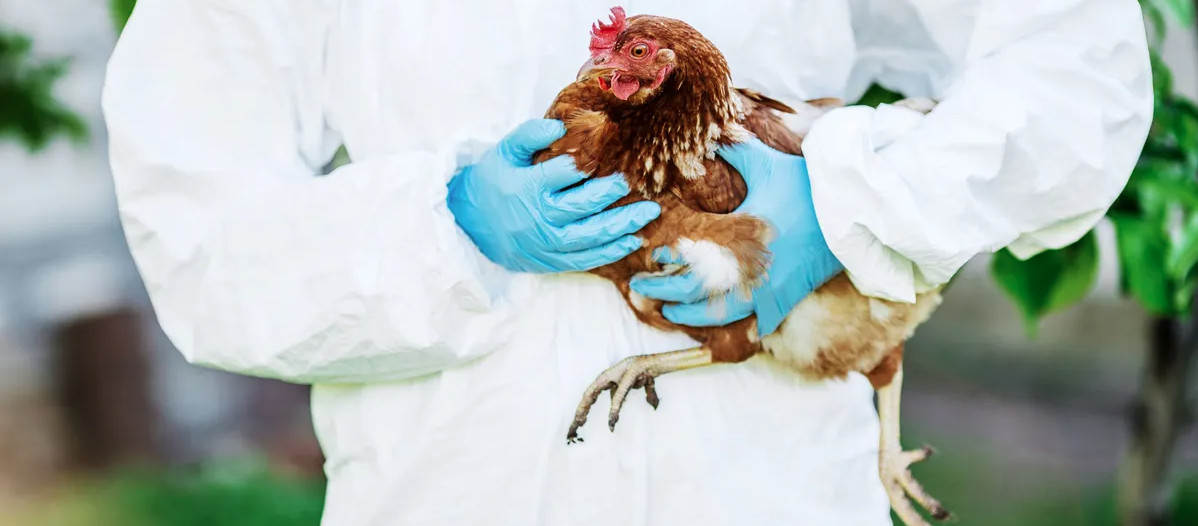The death of a young girl and infection of her father has sparked fears that the virus may have adapted to human transmission.
The World Health Organization (WHO) is working with Cambodian authorities to investigate two confirmed human cases of H5N1 bird flu in the country, officials announced this week.
But while the situation has been described by the WHO as “worrying”, experts have noted that there is not yet any evidence that the disease has adapted for human-to-human transmission.
Cambodian health authorities confirmed the death of an 11-year-old girl from the disease Thursday – the first known human case of bird flu in the country in nine years, per the BBC. Her father has also tested positive for the virus, officials noted, while another 11 contacts have all tested negative.
Human cases of bird flu are rare, as we lack the receptors in our throats, noses, and upper respiratory tracts that are most susceptible to the virus. Most human infections occur in those who have direct and frequent contact with birds – which most experts currently think is what likely happened in Cambodia.
“The risks from this virus to your average person on the street right now is very low,” Richard Webby, director of the WHO Collaborating Center for Studies on the Ecology of Influenza in Animals and Birds at St. Jude Children's Hospital, told the New York Times.
The discovery that the girl’s father was also positive for the virus strain set health officials on high alert, however. While hundreds of human cases of bird flu have been reported over the years – and indeed, in the decade before Cambodia’s last case, the country recorded 56 human cases of H5N1 infection, 37 of which were fatal – any evidence of human-to-human transmission may signal the onset of the planet’s next great pandemic.
“The global H5N1 situation is worrying given the wide spread of the virus in birds around the world and the increasing reports of cases in mammals including humans,” Sylvie Briand, the director of epidemic and pandemic preparedness and prevention, told reporters in a press briefing on Friday. “WHO takes the risk from this virus seriously and urges heightened vigilance from all countries.”
While the fact that so many of the family’s close contacts have tested negative for the virus is no doubt reassuring, Briand noted that antivirals and vaccines for the disease are already available. However, they would need to be updated to more closely match the strain of H5N1 currently circulating – a process that could take four to five months, Webby advised.
Luckily, despite fears over the current subtype’s transmissibility and fatality numbers among birds – plus concerns over its apparent ability to infect some mammals – only eight human cases worldwide have been reported to the WHO. All of those were in people who had close contact with infected birds, and most caused fairly mild illnesses.
Nevertheless, the WHO has confirmed that the virus will “need to be monitored closely” to see if it is mutating into a form that can spread among humans. In the meantime, Webby advised, people should take care to avoid contact with birds that may be infected – particularly with the current subtype proving so virulent among avian species.
“[Transmission among people is] very, very rare,” he told the New York Times. “But it’s not zero. And that’s primarily because there’s just so many more infected birds around right now.”
- Mutton, Karlston and aum
-

 3
3




Recommended Comments
There are no comments to display.
Join the conversation
You can post now and register later. If you have an account, sign in now to post with your account.
Note: Your post will require moderator approval before it will be visible.